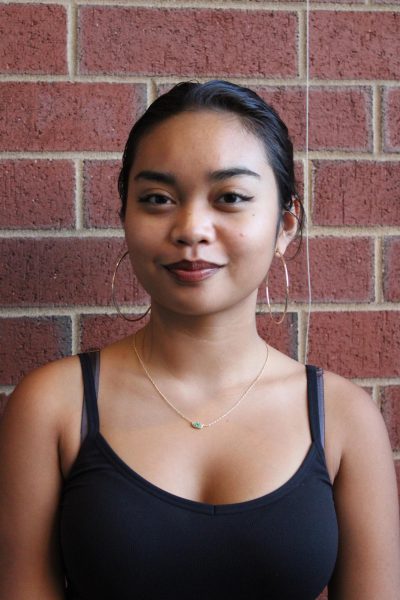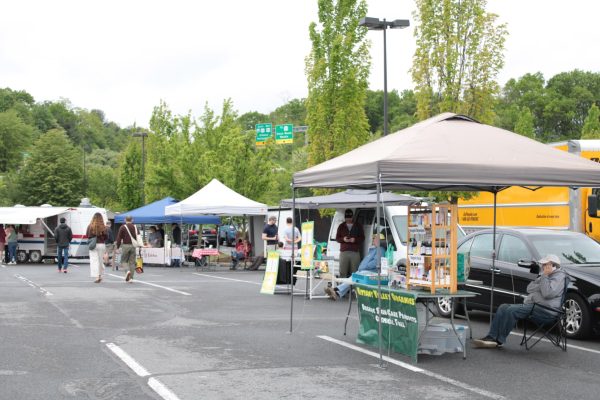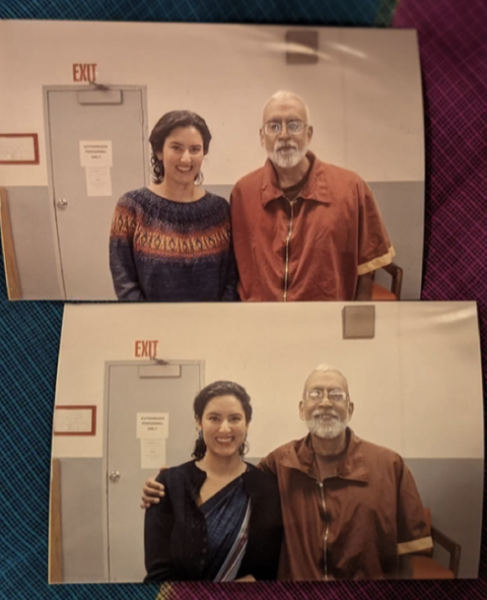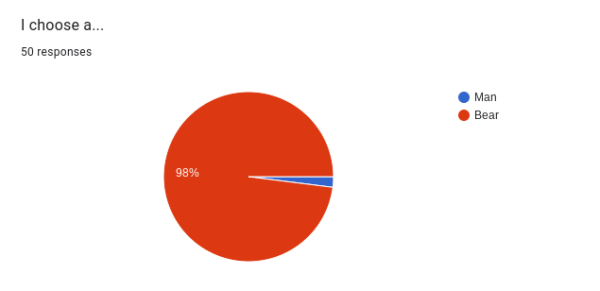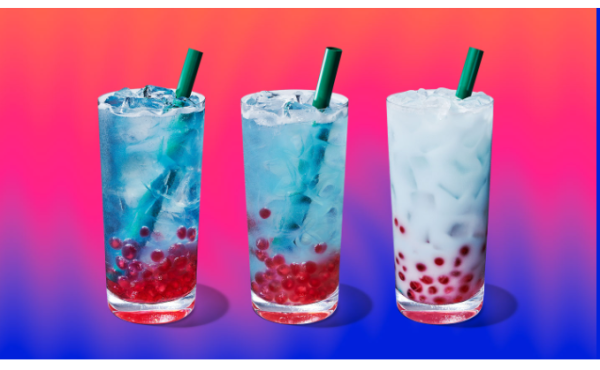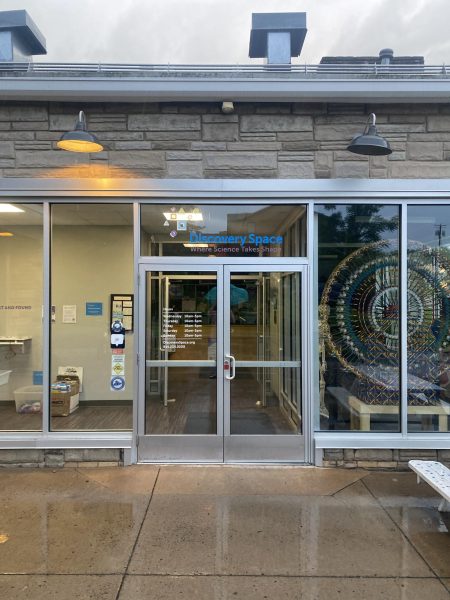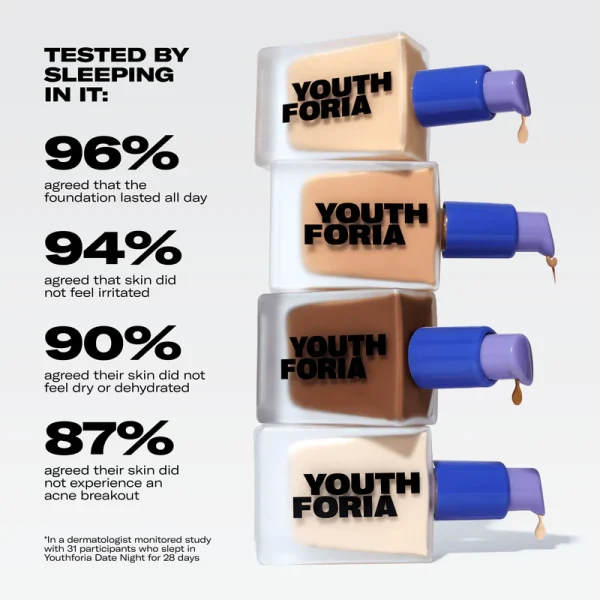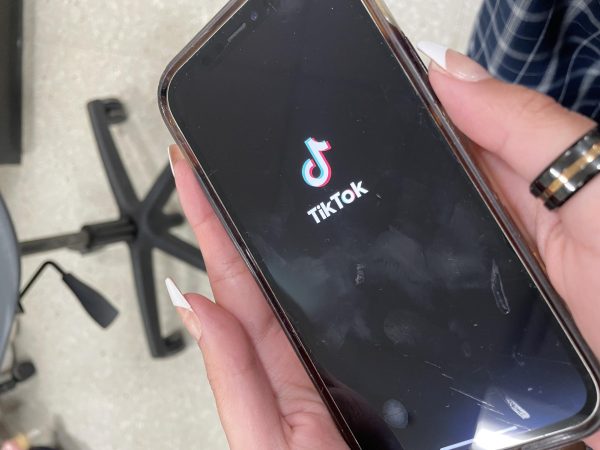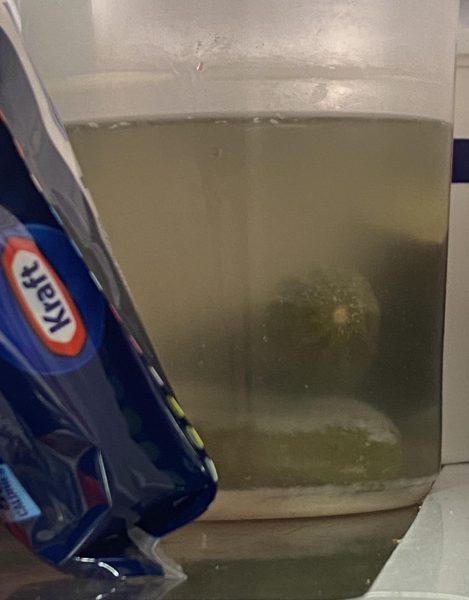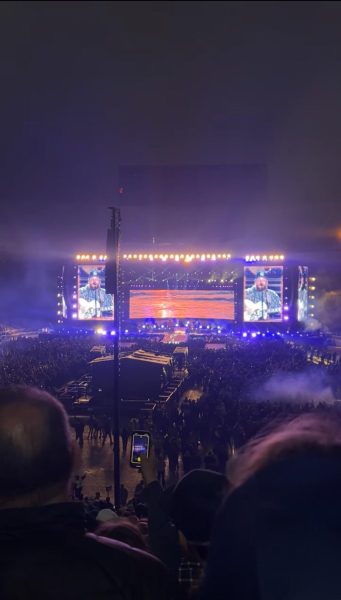What Is Voter Suppression?
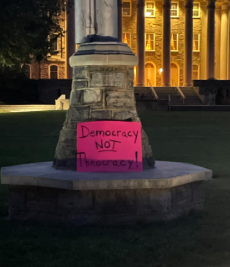
Local protests against political decision to overturn Roe V. Wade. A decision made by the Supreme Court, who should hold no say in a decision affecting so many.
October 10, 2022
Voter suppression is a technique used by lobbyists to restrict minorities in America from voting in local or national elections. A variety of techniques such as reduced polling hours in communities of color, “red lining”, and other roadblocks lead to voter suppression
Disenfranchisement isn’t a strong enough word. Nobody should be excluded from participating in elections that dictate our shared futures regardless of social identity. Neither political parties are taking action. What we need now more than ever is to allow Americans to vote on their futures, regardless of the limitations put in place disportionately restricting our marginalized groups and our country from moving forward.
Cristina Ibarra, a high school mental health support advocate and a social worker in Southern California states, “Voter suppression is where either systemically or institutionally folks prevent certain communities from participating in our voting system. This can be done through redlining which is when the government or communities purposely leave out information and leave out certain communities when drawing the borders around neighborhoods and districtal districts is what we call it.”
Red lining is a tactic used post Great Depression during the New Deal era. The term was first used when government programs measured loan worthiness for federal housing aid. The aid recieved was determined by labels used for each neighborhood by the least risky (green: A or B) to most risky ( red: C or D). Once labeled, based on their ranks, it was decided if these certain neighborhoods were worthy of lending programs or housing aid. Pennsylvania is directly affected as a result of the 1973 redlining; Redlining affects Philadelphia’s quality of schools, residents health, infrastructure, and property value.
Throughout history, the US government has always restricted certain people from their voting rights. After African Americans gained the right to vote, racists did everything in their power to secure “their” house. Violence and hard to-access ballots are a language that white supremacists still use today. Excluding illiterate Black men from voting while granting illiterate white men the right to vote was done to prevent legislators from broadening rights to every citizen, in other words racism. That tactic is “grandfathering”.
Ibarra highlights,”It’s basically a manipulation, I would use, the manipulation of the system and of institutions that mostly the system to purposely leave out the voices of particular communities. Mainly black and brown communities. But mostly black communities and mostly low income black families.”
A huge factor in why 5.2 Americans in the United States were not able to vote in the 2020 election is due to minor or major felony records. A felony ranges from 1 to 10 years, including severe to low collar crimes. Twelve million Americans have a felony on their record. To determine if felons should be granted the right to vote, it is up to state legislature. Some states allow those with a criminal record to vote, but others restrict anybody with a felony despite its severity.
A large percent of those who weren’t able to vote are brown and black voters. African Americans are 3.7 times more likely to be disenfranchised and 1.7% non- African Americans cannot vote compared to the 6.2% African Americans who also cannot. This is not a coincidence. The law is more likely to harshly commit young Black men than their white counterparts.
Ibbara states, “A lot of black people specifically are incarcerated for like, possession of marijuana which is such a minor offense. Especially when so many states are now legalizing or decriminalizing marijuana. So when that happens, that’s like taking away the voting rights of a lot of black folks, a lot of low income black folks. That’s removing them from the equation of how they might be able to re-enter society or that’s removing them from the equation, and from the decision making of like how their families are trying to take care of themselves, while a major member of their family is currently incarcerated.”
Why instead of allowing these people to vote for ways to rehabilitate, we instead completely cut those same people off from much needed resources. Cutting access to support and opportunities for marginalized groups is intentional. Those in power know that if the percentage of those who cannot vote could, the votes would not be for them.
Throughout history, the whole foundation of America’s economy and political status has been dependent on our immigrants: 17% of the US workforce is composed of millions of immigrants. Roughly, ⅓ of those workers are not legally supposed to work.
Voting is a right of all; It is the practice that people in the US perform as civic duty. The US government is selfishly limiting our workforce from legislations that would repay our immigrants, documented by voting. Allowing everyone regardless of immigration status to vote will help create a more authentic democracy for all, smoothing over immigration discourse.
Ibarra recalls a memory of hers where her previous student had been an active member in our US community for more than half their life. “You’re telling me that this brilliant person, who contributes so much to our country is not able to, can’t participate in democracy. Or even the folks who are like cooking your food, like the folks in the back of the restaurant who are like cooking our food. Our custodians, who are not documented. Are you telling me. They are very present parts. They help make our community clean. They’re a big part of our community. Why can’t they also have the chance or have the opportunity to have their voices heard.”
A democracy is defined as a community of people having a say in its country’s government. The United States claims to practice these democratic ideals. However, historically our government selects its rules based on who is in charge, or able to be in charge. Ibarra explains,”When Voter suppression excludes, black folks for example, excludes certain parts of the community, it leaves a very small part, a small part of the community with power, right, mainly wealthy white people who are politically connected to make all the decisions.”
Wealthy politicians use manipulation against low income families depriving them of various implications that would help aid or alleviate their stress. This tactic targets people in the south. Voting for a certain person, with a community’s shared interests would invest their future, the American future. A vast amount of foul play soon follows. Ibarra states, “When a lot of low income white folks, especially in rural areas, vote for more conservative politicians who are active parts of voter suppression. …..Because those politicians don’t actually have those families’ wellbeing in mind. It’s another form of manipulation by a group that is in power. Even if they share the same race.”
Voter suppression was a tactic used in earlier centuries to silence and leave many communities out of democracy. By implementing various versions of these manipulations, we are following a century-long pattern of leaving oppressors in power.

